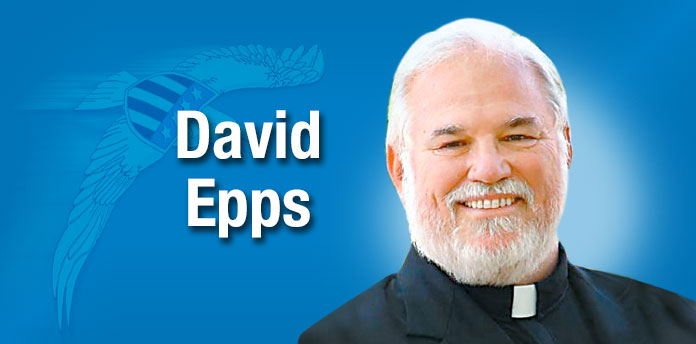It was the summer of 1971 and I was doing a stint at Marine Corps Base Camp Lejeune, NC. I was a PFC and was summoned to the office of my commanding officer (CO). He asked me a number of questions and then said, “I understand that you don’t drink alcohol, PFC Epps. Is that true?”
“Yes, sir, it is,” I responded, wondering why that last question was posed.
“Then I have a task for you,” he said.
He presented me with paperwork to complete and informed me that I had been selected to go to driving school and obtain a military driver’s license. I was a bit confused, as my military occupational specialty did not require me to drive a vehicle. But, when you are a Private First Class, your response to an officer is simply, “Sir, yes sir.”
Within a couple of days I was sitting in a classroom. Over the next week, my job, eight hours a day, was to train to drive some of the Marine Corps’ military vehicles. We began with the Jeep, advanced to other vehicles, and ended up with, what I called, the Troop Transport Trucks. Also known as the M54 5-ton 6×6 truck, most often seen on the roadways in those days as the National Guard soldiers headed off to their annual two-week training camps.
I passed the course and was issued a military driver’s license. It all became clear a few days later when I was summoned once again to the CO’s office.
It seems that a large group of Marines were going to have a “beer bust” at Onslow Beach. For the uninitiated, a beer bust is when Marines drink beer until they bust — or “burst,” if you wish to be grammatically correct.
I could eat all the food I wanted, drink all the soft drinks I chose to consume, but, since I didn’t drink alcohol, my role would be to safely transport groups of Marines back to their barracks once they were too drunk to stand up.
It was a glorious day with a gentle breeze and the roll of the waves. I just hung out on the beach, enjoyed the food, the water, and the soft drinks and waited until I received the call — several calls, as it would turn out — to “load ‘em up and move ‘em out.” Initially, all went well.
I was new to Camp Lejeune and, in the days before GPS, I had to rely on maps or on the directions of drunk Marines. Neither of which were particularly helpful. But, we were getting where we needed to go until that last group was loaded up in the back of the truck.
Somehow I made a wrong turn and, to my horror, realized that we were travelling through the neighborhood on base where the Commanding General lived. Not the place for a truck full of drunk Marines, however sober the driver might be.
I slowed to a stop sign and, as one group, the Marines piled out of the truck and took the occasion to urinate on the general’s flower bed.
I did what any panicked PFC would do — I drove off and left them standing there. But — since Marines theoretically never leave a man behind — I circled the block and headed back to where these guys were now staggering down the street. I reduced my speed only to the point that they could safely (more or less) scramble back into the back of the truck and drove on.
“Good job, Epps,” the CO said later, when the task was finished. “Did you have any problems or issues?”
“No, sir,” I boldly lied, hoping that no one had made a report.
“Great,” he said. “It’s good to know we can count on you when the need arises again.”
“Yes, sir,” I replied.
It all ended well, fortunately. To paraphrase a saying, “Ours not to reason why, ours but to do and drive” (with apologies to Alfred Lord Tennyson).
[David Epps is the Rector of the Cathedral of Christ the King (www.ctk.life). The church is open at 10:00 a.m. on Sundays but is also live streaming at www.ctk.life. He is the bishop of the Diocese of the Mid-South (www.midsouthdiocese.life). He may be contacted at [email protected].]












Leave a Comment
You must be logged in to post a comment.